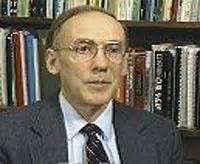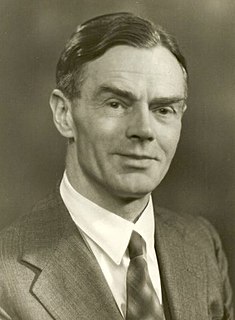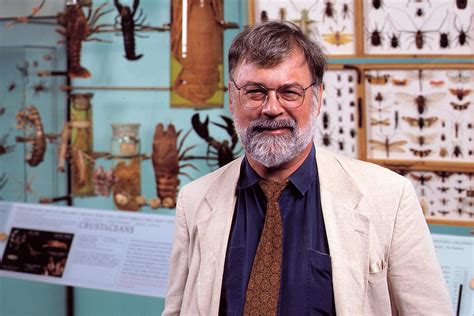A Quote by Theodosius Dobzhansky
The evolution of life, and the evolutionary origin of mankind, are scientifically established as firmly and completely as any historical event not witnessed by human observers. Any concession to anti-evolutionists, suggesting that there are scientific reasons to doubt the facticity of evolution, would be propagating a plain untruth.
Related Quotes
In the final analysis the hierarchic pattern is nothing like the straightforward witness for organic evolution that is commonly assumed. There are facets of the hierarchy which do not flow naturally from any sort of random undirected evolutionary process. If the hierarchy suggests any model of nature it is typology and not evolution. How much easier it would be to argue the case for evolution if all nature's divisions were blurred and indistinct, if the systema naturalae was largely made up of overlapping classes indicative of sequence and continuity.
The battle over the validity of evolution has been publicly posed as a scientific one. However, you will find little sign of it in scientific journals, where such quarrels as exist are over details, not the basic concept... Evolution has proved so useful as a paradigm for the origin and structure of life that it constitutes the foundation of the sciences of biology and medicine.
It is essential for evolution to become the central core of any educational system, because it is evolution, in the broad sense, that links inorganic nature with life, and the stars with the earth, and matter with mind, and animals with man. Human history is a continuation of biological evolution in a different form.
There is no evolutionary pressure to create minds capable of forming sciences; it just happened. Evolutionary pressure has not led to higher rates of reproduction for people capable of solving scientific problems or creating new scientific ideas. So if, in fact, the science-forming capacities evolved for other reasons, it would not be too surprising if those particular structures that have developed proved to be rather special in their nature, reflecting the contingencies of their evolution or the working of physical law.
The Singularity denotes an event that will take place in the material world, the inevitable next step in the evolutionary process that started with biological evolution and has extended through human-directed technological evolution. however, it is precisely in the world of matter and energy that we encounter transcendence, a principal connotation of what people refer to as spirituality.
It is my conviction that if any professional biologist will take adequate time to examine carefully the assumptions upon which the macro-evolution doctrine rests, and the observational and laboratory evidence that bears on the problem of origins, he/she will conclude that there are substantial reasons for doubting the truth of this doctrine. Moreover, I believe that a scientifically sound creationist view of origins is not only possible, but it is to be preferred over the evolutionary one.
By contrast with history, evolution is an unconscious process. Another, and perhaps a better way of putting it would be to say that evolution is a natural process, history a human one.... Insofar as we treat man as a part of nature--for instance in a biological survey of evolution--we are precisely not treating him as a historical being. As a historically developing being, he is set over against nature, both as a knower and as a doer.
In a very real sense, therefore, advocacy of the doctrine of continuity [i.e evolutionism] has always necessitated on retreat from pure empiricism [i.e., logic an observation], and contrary to what is widely assumed by evolutionary biologists today, it has always been the anti-evolutionists [i.e creationist], not the evolutionists, in the scientific community who have struck rigidly to the facts and adhered to a more strictly empirical approach... It was Darwin the evolutionist who was retreating from the facts.
If it is true that an influx of doubt and uncertainty actually marks periods of healthy growth in a science, then evolutionary biology is flourishing today as it seldom has flourished in the past. For biologists collectively are less agreed upon the details of evolutionary mechanics than they were a scant decade ago. Superficially, it seems as if we know less about evolution than we did in 1959, the centennial year of Darwin's on the Origin of Species.


































